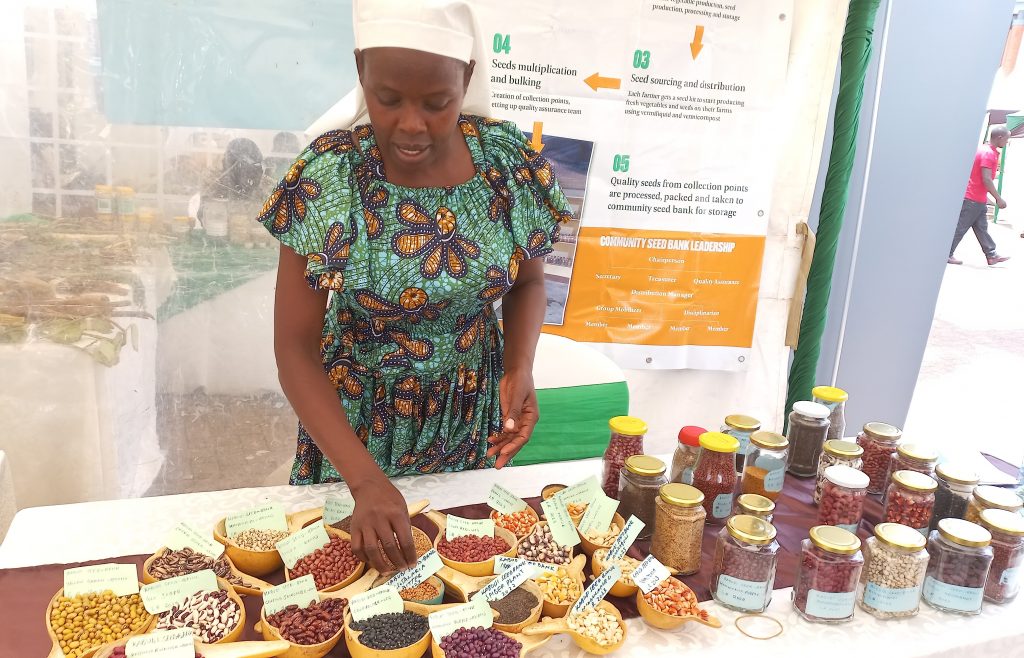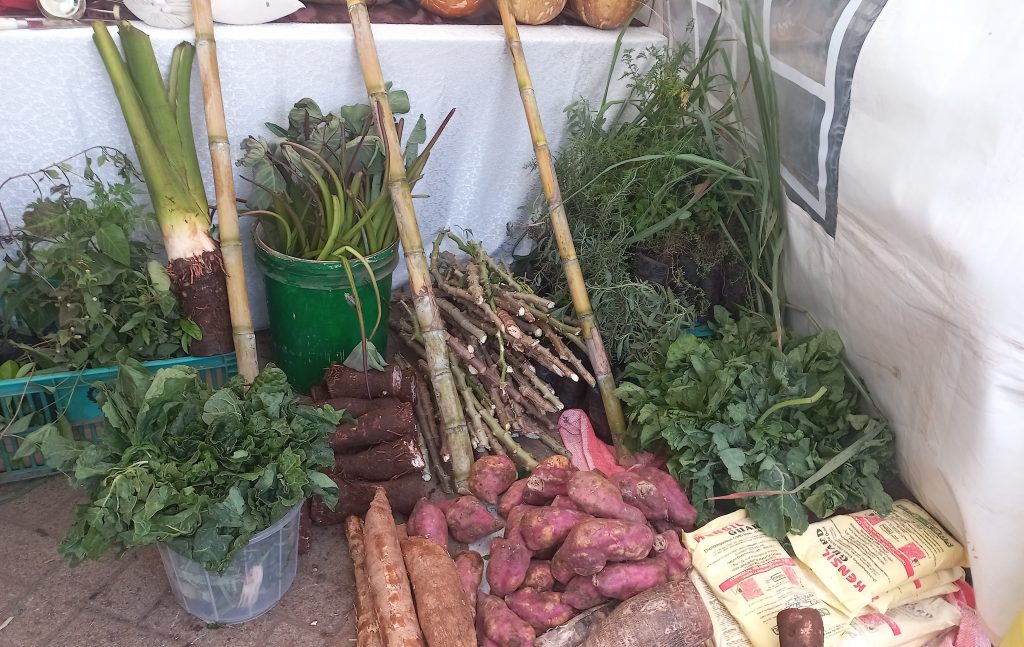Stakeholders in the food system value chain have called for a review of the seed and plant varieties act to allow farmers share indigenous seeds.
The Biodiversity and Biosafety Association of Kenya National Coordinator Anne Maina expressed fears that the current act curtailed the sharing of indigenous seeds and instead impacted negatively by increasing the seed import bills to the country.
She called on the need to ease restrictions hindering the circulation of indigenous varieties which were rich in nutritious value compared to exotic imports to bolster the country’s food systems.
Maina made the observation during the opening ceremony of the second indigenous seeds and Food Culture harvest fair where she challenged state actors to earmark budgetary allocation for indigenous seed banks.
“Some policies in the seed and plant varieties Act prohibited the selling of uncertified seeds with punitive penalties for person found liable who may pay a fine of up to one million shillings or a two year jail term thereby technically locking out the indigenous varieties from the market ” she decried.
Ms Maina however said players in the agriculture value chain had raised concerns for the repeal the restrictive act to allow small scale farmers to freely share the homegrown seeds to preserve the country’s indigenous varieties from imminent extinction.

According to Maina the Act as it is now discourages the use of indigenous seeds which have cultural and historical significance for peasant farmers in rural villages.
She added that sharing of seeds is taunted to protect the country’s food sovereignty and protect the country’s biodiversity with activists warning that the country might continue to spend more on food imports and subsidies programme due to conventional seeds that are not drought resistant and reduce their productivity if replanted multiple times
“The seeds and plant varieties, Maina said, have unique traits that are well-suited to local climatic conditions because they had proven to be resilient to pests and diseases and therefore prohibiting their distribution within these localities could lead to loss of biodiversity.
“We are asking the government to consider establishing an indigenous seed banks as a matter of priority in the budgetary allocations to encourage propagation of such varieties and the practice of organic farming to reduce the cost of food production” she said.
Maina said although the government had put up a genetic resource center, there was need to expand the scope to factor the input of smallholder farmers who are establishing community seed learning centers and seed farms.
The Kenya Agricultural and Livestock Research Organization Deputy Director Crops Dr, Felista Makini said indigenous seeds and traditional African crops have created so much interest over the years because of high nutrition and their resilience to climate change and drought
She said that indigenous crops had attracted the interest of researchers at KALRO who are developing seeds systems for the various crops from different communities for posterity.
“We need now to move from growing and promoting the seeds just among the community level but grow them in larger scale because it has been a challenge selecting the varieties for research. We have picked some such as the Cassava, Sorghums, Millets and leafy vegetables but we need to do more to promote production for a wider region “, Makini said.
She explained that climate change had changed the landscape as previously wet areas had dried up and were experiencing drought hence the need to promote the indigenous resilient crops such regions to sustain food security.
KALRO houses the Genetic Resources Research Institute (GeRRI) institute that safeguards traditional seeds and prevents the loss of genetic resources
The gene bank is based in Muguga , Kiambu County and has amassed a collection of over 50,000 different plant species that are sourced from farmers around the country.
Rosina Mbenya from PELUM Kenya stressed that it was critical that stakeholders play a role in ensuring that the seeds we already have were protected.
“ We applaud our farmers and we need to continue encouraging the small scale farmers who are at 80 percent as they play a very critical role in this country of feeding us and also saving their seeds”, she said .
Mbenya insisted special attention must be accorded to the farmer-managed seed system, because they had over the years developed the capacity and passion to nurture the indigenous seeds which they had since passed to generation and prohibitive laws should be laxed to allow continuity.
She emphasized on the role the village women played in ensuring food was put on the tables and seeds for planting the next season was preserved and protected since they were traditionally the custodians of the seeds.
Samuel Nderitu from Muguga, in Kiambu has been helping farmers conserve indigenous seeds in his seed bank through training on how to conserve and save their seeds
“Quality seeds means that the seeds are free from pests and diseases and have uniformity in size. That is what we are teaching farmers to do and we make follow ups.It is important for farmers to preserve some of the indigenous seeds which can withstand the effects of climate change”, said Nderitu who is the director of Grow Bio Intensive Agriculture Centre of Kenya .
Evalyne Okoth on her part said their group of women from Nyakach conserve seeds every season but their biggest challenge was they were unable to sell the seeds due to the prohibitive legislation.
She added that researchers were getting the seeds from them for their activities but asked the government to fast-track the repeal of related laws to allow such groupings sell seeds to boost their earnings.

Dr. Gloria Otieno , a genetic resources and food security policy specialist said traditional leafy vegetables including beans, cow peas were important for climate change adaptation because they do well sustainably without pesticides and fertilizers that destroying the environment.
“Right now it’s getting warmer and drier. There is drought. Some of these crops are drought tolerant. They are able to withstand a lot of new pests and diseases such as the fall armyworm, they are able to mitigate on the effects of climate change because they can be grown sustainably without the use of many pesticides”, she said
Dr. Otieno said they have been working with farmers to conserve seeds to restore the lost diversity of sorghum from gene banks in Kenya, Uganda and Tanzania and tested them with farmers through participatory variety testing that has seen the conservation of at least 67 varieties of beans, 23 varieties of sorghum and 10 varieties of finger millet which were performing well under drought and heat stress.
The two day Indigenous seeds and food culture harvest fair is running under the theme “ Celebrating food and Seed sovereignty in Kenya: reclaiming and protecting our food and farming systems while nourishing our health and sustaining our future”
By Wangari Ndirangu

.jpg)